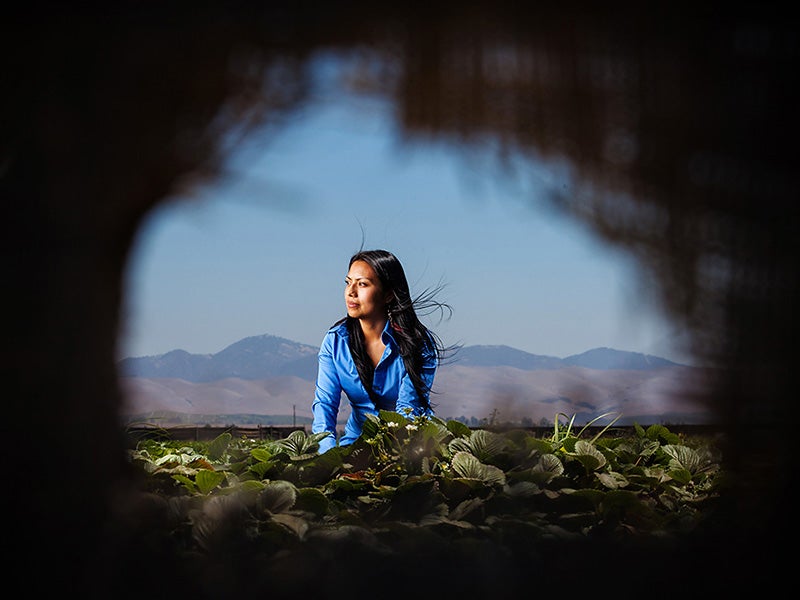Returning to the Scene of a Pesticide Poisoning
A former farmworker works to improve field conditions

This page was published 11 years ago. Find the latest on Earthjustice’s work.
This is the fifth blog post in a weekly series of personal stories from farm and agricultural workers, illustrating the need for stronger worker and safety protections against pesticide exposure. To get beyond the statistics of 10,000–20,000 pesticide poisonings on farms a year in this country, we go to the frontlines, beginning in California.
Olga shared her story through a wall of tears and it had been some time since she had relived her childhood memories of working in the fields throughout California and Washington states. She now works with a non-profit organization as an office assistant, promoting farmworker rights.
I started working in the fields with my parents at six years old. We worked the seasonal crops so we moved around a lot. I went to school and would work full-time during school vacations. We lived in a van and parked on the side of the fields. Most of the time, we slept in the clothes we worked in. Even if we changed clothes, the chemicals would still be in the van. There were five of us in our family, and sometimes others would stay with us. Once the strawberries were picked and there was no more work, we would drive to the next field. Strawberries, zucchinis, onions—we picked them all—and my experience with all of them is that the bosses don’t care for you. All they care about is the harvested crop so they can make money.
To think about my childhood makes me so sad and teary-eyed. The employers would spray pesticides near us over and over, and there was nothing that could be done. I somehow was able to keep a picture of when I was a kid working in the strawberries. When I look the photo, it brings back a lot of memories. As a child, there is not much you can do, other than try to speak up as loud as you can. My parents were fearful of losing their jobs so they wouldn’t say much. I had a big mouth so I would say, “This is not right. Why are they doing this to us?” But nothing ever changed. Everybody was getting sick with the headaches. They would feel weak.
I remember not wanting to eat because I felt like I wanted to throw up much of the time. I couldn’t eat because I wasn’t able to hold down the food. I think back to when this picture was taken and it was really traumatic. The tractor was steps away from us. We were having lunch, and we could feel the droplets of pesticides come towards our faces and food. People would continue to eat and just keep their heads down. Even though people would try to say something, nothing was ever done. We are all human. Things like this should not be happening. And it still happens today but most people may not see it because it is kept hushed; because people don’t report it; because of the fear of retaliation; fear of being deported; and fear of losing their jobs. If you do speak up, you run the risk of getting fired. I remember my parents having to find new jobs and never hearing why. And it could be because we spoke out. My parents still work in the fields, and these things still happen. You would think things would be different because of stronger laws today. They aren’t.
Established in 1989, Earthjustice's Policy & Legislation team works with champions in Congress to craft legislation that supports and extends our legal gains.